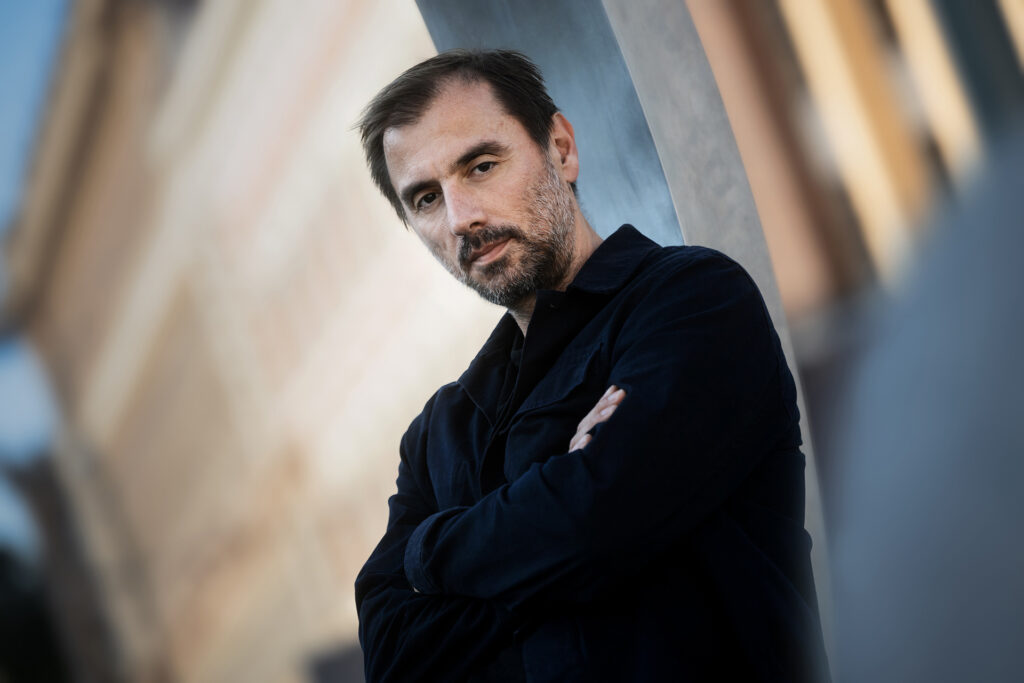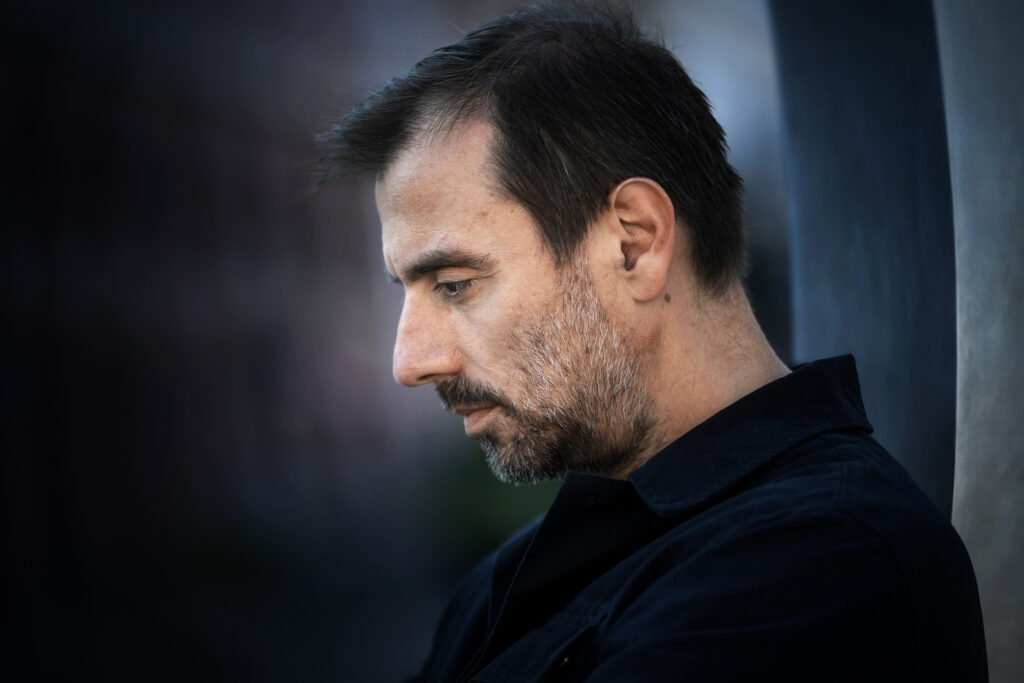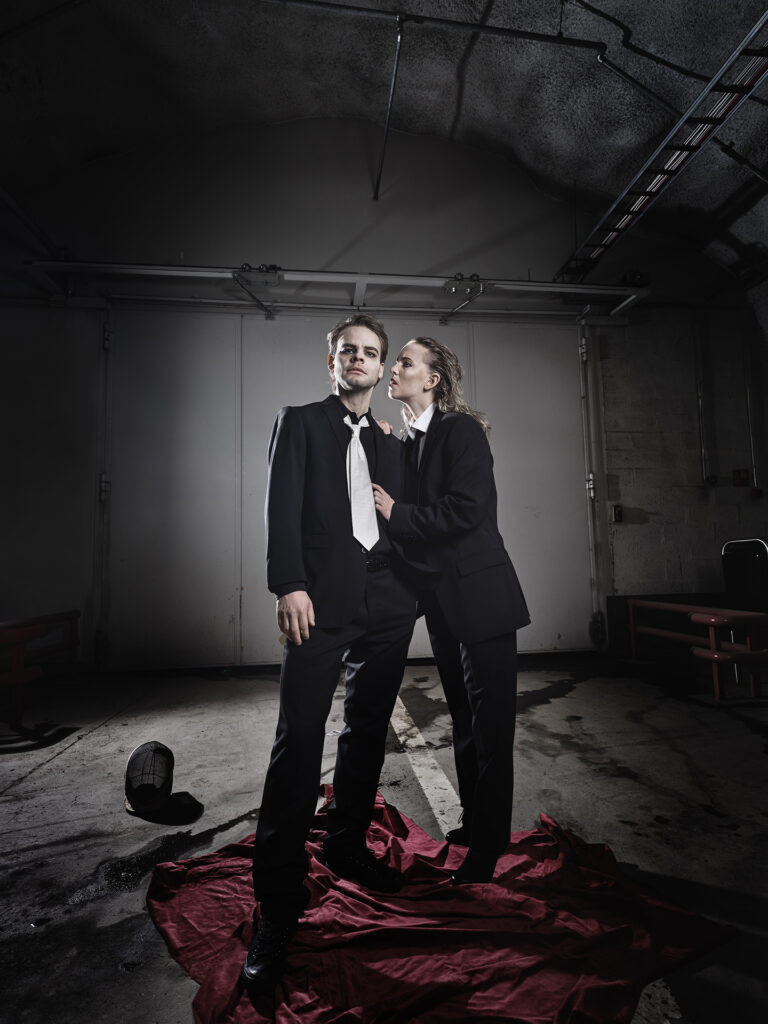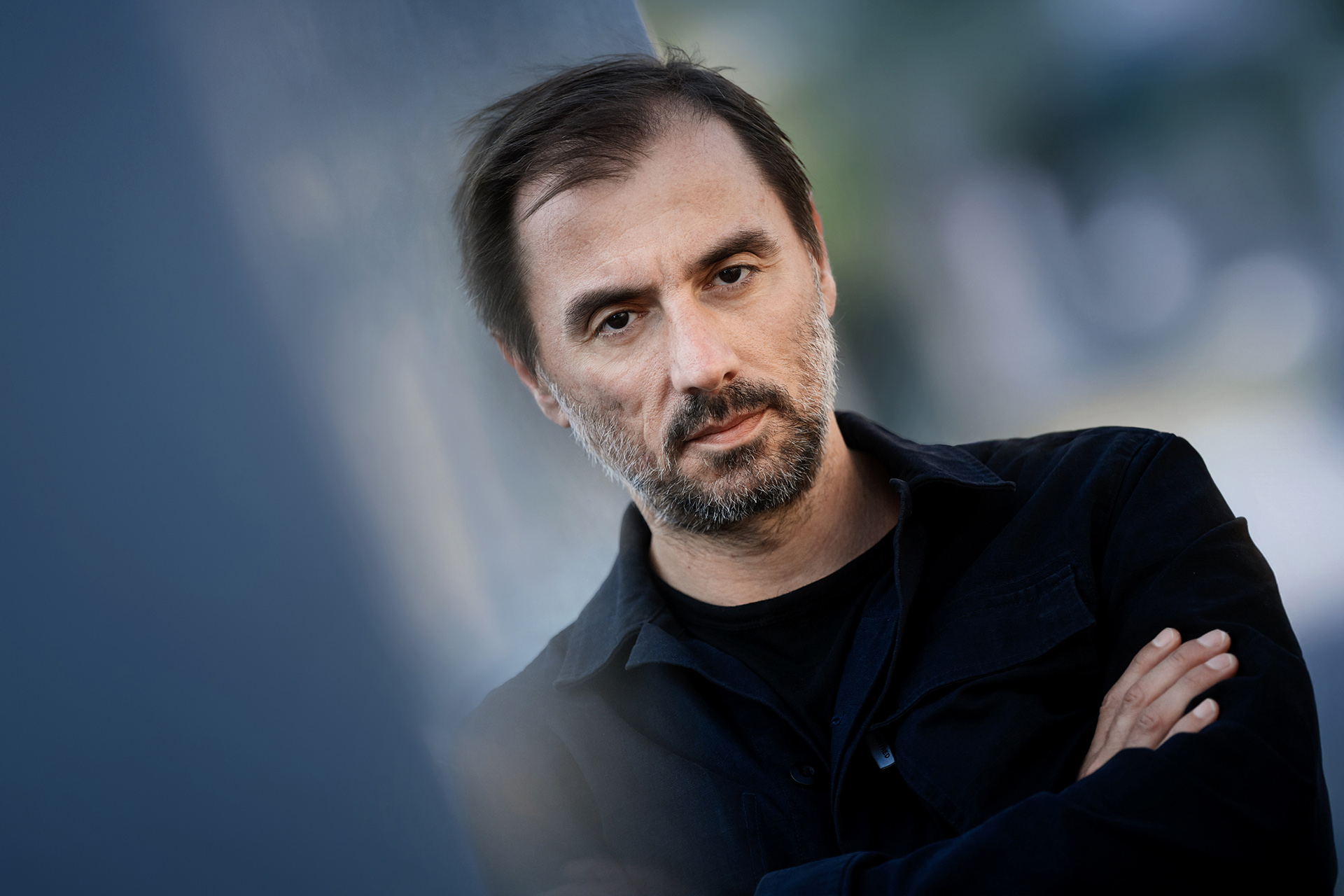When staging the world’s most famous play by the greatest playwright in theatre history, you need something to say—both about the play and the present time. This is what director Dritëro Kasapi brings to his reinterpretation of Shakespeare’s Hamlet, premiering on November 7th at Svenska Teatern in Helsinki.

Death, revenge, and madness are themes that often come to mind when we think of William Shakespeare’s classic play Hamlet (1623), as well as the scene where the young prince philosophizes about the meaninglessness of life while holding the skull of his childhood friend. Around him, the old kingdom of Denmark is crumbling, and Hamlet—both murderer and victim himself — desperately tries to navigate the chaotic circumstances that refuse to set him free.
“Hamlet’s decaying Denmark is like the wars and climate disasters of our time, while he himself represents today’s younger generation, forced to live with the consequences that previous generations have caused through corruption and selfishness,” says Dritëro Kasapi.
“I think the play resonates incredibly well with our modern era.”
Love is the driving force, but the corrupt world makes happiness impossible
It is clear that Kasapi cares deeply about young people and understands their anxiety. At the same time, he sees that previous generations, too, were driven by love, making it difficult to clearly define villains and heroes in the shared story of our existence.
“There’s a tension in the complexity of our situation. Love is the driving force—between lovers, friends, siblings, families, and between generations — but the corrupt world makes happiness impossible.”
Like Hamlet, we are all left to face uncertainty and doubt. But that can be both a blessing and a curse.
“Hamlet constantly questions himself, searching for certainty and the strength to do what is right. His final choice leads to tragedy, and it is the result of him abandoning doubt. Hamlet is not wrong in his assessment that the world is rotten and that something must be done, but in the end, he chooses violence as the solution. It’s a loss of compassion and humanity. That is where the tragedy lies.”

Shakespeare, a profound observer of human nature
Doubt is the central tension and driving force in Dritëro’s Hamlet. It’s both a curse and a strength, depending on how one deals with it.
“We simultaneously have too much and too little doubt in us. We need to be able to question categorical truths without becoming paralyzed in the face of real challenges. The most comfortable way to live is to never doubt—but that’s a false way of existing.”
“Hamlet is a smart young man, and all of the characters in the play are highly complex. Shakespeare is a deep student of human nature, giving us the opportunity to explore our own complexity.”
A second core theme in Dritëro’s Hamlet is the generational conflict. In the play, Hamlet’s father, the king, has barely been laid to rest before his mother, Gertrude, betrays him by marrying his uncle, Claudius, who is also the murderer of Hamlet’s father. In his “generational rebellion,” Hamlet takes revenge on both Claudius and—by mistake—Claudius’ advisor Polonius, who is also the father of Hamlet’s girlfriend, Ophelia. The old generation is now gone, but the futility of Hamlet’s bloodshed only underscores the emptiness of existence, both for Hamlet and for us.
I am a storyteller – the story must be clear and straightforward

“It’s a fact that, in many ways, we have fewer opportunities than our parents had, and the world we’ve inherited could have been managed better. The dilemma is both individual and collective: ‘What do we owe those who come after us? What do they deserve? What are they entitled to?’”
And conversely, what fate do those who came before deserve?
Despite the complex philosophical questions, Dritëro Kasapi wants his work to be accessible and communicate clearly with the audience.
“I’m a storyteller. I want the core story, the characters, and their relationships to be clear and understandable. Only then can we begin to absorb the underlying philosophical thoughts.”
For this, Dritëro has made slight adjustments to the script.
“The story is intact. I’ve rearranged a few scenes and focused more on the love story between Hamlet and Ophelia, giving her some of the qualities of Hamlet’s best friend, Horatio. But the tragedy lies in the fact that Hamlet still can’t fully confide in her because he wants to protect her from the brutal truth.”
Through Ophelia’s new role, Dritëro also offers the audience a new perspective and a different way of thinking. And how thoughts are turned into actions is the central philosophical problem.
Ophelia’s new role offers the audience a new perspective
“Are we what we do, or what we think and desire?” asks the director, answering his own question: “We manifest ourselves through action, as reality is not affected by my thoughts or desires.”
“Hamlet’s indecision is the result of his doubt, but we are not free to act however we want. We are driven by our psychological makeup, our morality, and our sense of right and wrong. We must make the choice to act and take responsibility for it. The great moral question is whether violence can ever be necessary. We see this in Ukraine’s fight for defense, or in climate activism. At the same time, we face the question of whether what we do can really make a difference.”
Shakespeare wrote Hamlet during a time of transition between the old religious worldview and the era of Enlightenment and individualism, an age that we are still living in—an individualism that Dritëro suggests may have gone too far.
The tragedy should not be depressing or pessimistic; in the theatre, we can experience the horrific in a safe space.
“Where humans once saw life’s meaning from a rather powerless position, where one was expected to fulfill preordained roles under the watchful eye of God, with set functions within the family or society, over the last three to four hundred years, we’ve moved dramatically in the other direction, where the individual is at the center and humans are believed to have the capacity and right to change their living conditions as they wish.”
The shift toward a new humility in the face of the constraints of existence can be seen in environmental and climate activism, which the younger generation takes with a new seriousness. It’s a battle against both physical elements and deeply ingrained old ideas about human power and rights.
“The young oscillate between hope and hopelessness, just like Hamlet does. And I hope the audience can also oscillate between the gripping, classic story—the detective story that Hamlet is—and the existential dimensions of the narrative,” says Dritëro.
As we know, the story of Prince Hamlet culminates in a deathly orgy, with no happy ending for any of the main characters. That’s something Dritëro is keenly aware of as well.
“The tragedy at the end shouldn’t be depressing or pessimistic. Our world is the theatre where we can experience horror and process our dystopian despair in a safe space. In reality, we don’t have the option to abandon either hope — or doubt.”

Dritëro Kasapi, director
Dritëro Kasapi is a trained director from the Faculty of Dramatic Arts in Macedonia. He has 20 years of experience as a director with around 40 productions in Sweden and across Europe. Since 2018, he has also been the theatre director and artistic leader at Riksteatern in Sweden.
